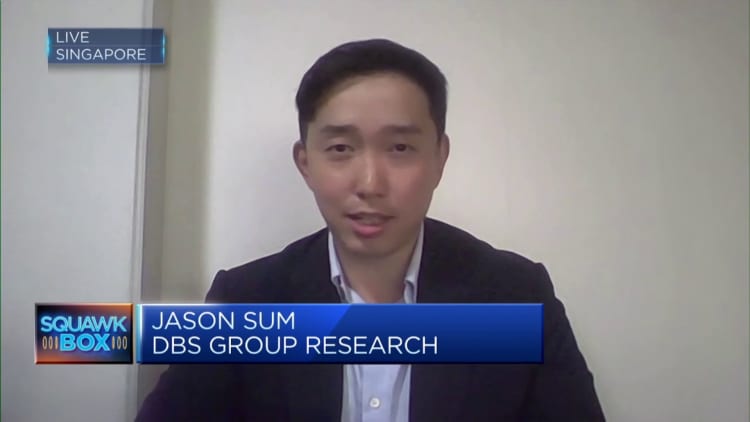Asia-Pacific markets were lower on Wednesday after Wall Street's sharp losses overnight, and New Zealand's central bank continued to hike its benchmark interest rate.
The Reserve Bank of New Zealand hiked rates by 50 basis points to 4.75%, the highest in over 14 years, to tame inflation. The S&P/NZX 50 Index fell fractionally to close at 11,794.2 and the New Zealand dollar gained 0.21% to stand at 0.6226 against the U.S. dollar.
In Australia, the S&P/ASX 200 closed 0.3% lower at 7,314.5 as nation saw its wage price index for the fourth quarter of 2022 come in lower than estimates.
Japan's Nikkei 225 finished 1.34% lower at 27,104.32 as the nation's producer price index rose 1.6% on an annualized basis, while the Topix dropped 1.11% to end the day at 1975.25.
In South Korea, the Kospi shed 1.68% to end the day at 2,417.68 and the Kosdaq finished 1.88% down at 778.51.
In mainland China, the Shenzhen Component closed 0.57% lower at 11,900.12, while the Shanghai Composite dropped 0.43% to finish at 3,292.16
The Hang Seng index was 0.46% lower in its final hour of trade, while the Hang Seng Tech index fell 1.56% as investors digested Hong Kong's budget. Financial Secretary Paul Chan said the economy shrank by 3.5% in 2022.
Overnight, on Wall Street, the Dow Jones Industrial Average shed 2.06% and the S&P 500 dropped 2%, marking the worst downturn for both indexes since Dec. 15. The tech-heavy Nasdaq Composite fell 2.50%.
— CNBC's Kim Hakyung and Fred Imbert contributed to this report.




